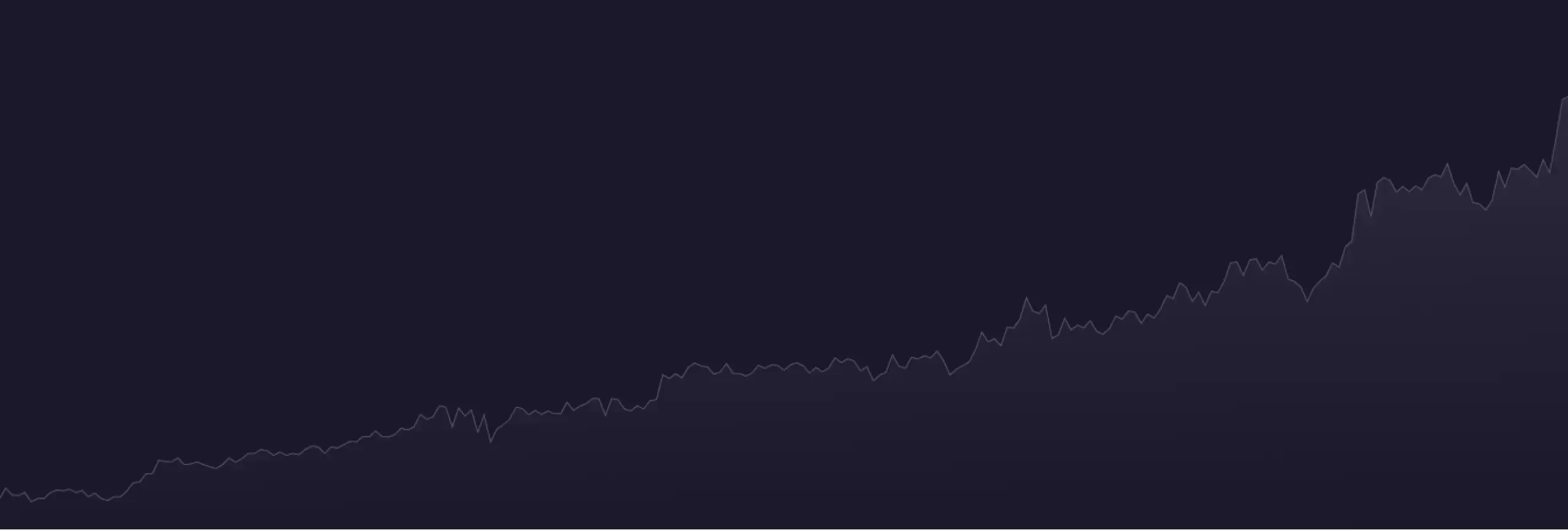

Here’s our pick of the key global economic and company events to look out for in the week commencing Monday 25 September.
Saga half-year results
Wed 27: Saga’s share price has struggled so far year to date, although they’re still well above the lows from October 2022, when the shares slumped to a record low level. Saga’s travel business was a major casualty of the Covid-19 pandemic, but there are signs of progress here, even as its insurance business has managed to tick along steadily. In June, management upgraded full-year forecasts, saying they expect yearly profits to be well ahead of last year, as its cruise business continues to see improvements in its load factor rates for this year, as well as next year. Travel is also performing well, in line with forecasts.
US Q2 final GDP
Thu 28: After a slowdown to 2% at the start of the year, the US economy looked set to for a strong improvement in Q2 after the initial iteration came in at 2.4%, despite a slowdown in personal consumption to 1.6%. The second revision to Q2 GDP threw in a bit of a curveball however, after a surprise downgrade to 2.1%, despite expectations for an upgrade to 2.5%. The downward revision was prompted by a fall in inventory levels, which declined by $1.8bn, while business spending was also reduced on equipment and IP products. Core prices also slowed for the quarter, coming down to 3.7%.
Nike Q1 results
Thu 28: Nike’s share price has continued to weaken, with Q4 results in June offering little respite, although the shares still remain above their lows from October last year. The China recovery story was expected to add a boost to the second half of this year, and has remained reasonably resilient after a positive Q3. But while China demand appears to be holding up, there are concerns that US demand may start to slow, despite Q4 revenue beating expectations, at $12.83bn. Profit, on the other hand, fell short of expectations, due to an increase in costs. Annual revenue came in at $51.2bn, while margins slipped by 1.4%.
On the outlook, the company was measured in its forecasts, with flat revenue expected for Q1, well below expectations of a 5.8% improvement. Nike is also having problems reducing its inventory levels, which are higher than they should be due to lower demand, while the shares have also suffered on the back of recent profit warnings from the likes of Foot Locker, whose shares dropped to 10-year lows last month after a sharp slowdown in its US market, which posted a surprise loss. Nike’s Q1 profit is expected to come in at $0.74 a share.
UK final Q2 GDP
Fri 29: The most recent iteration of UK Q2 GDP showed an economy that is in better shape than originally thought, while recent revisions from the ONS at the beginning of this month suggested that we could see a further upgrade to the 0.2% growth at the beginning of August. Expectations had been for a slowdown from the 0.1% in Q1, however a strong June GDP number of 0.5% put any thought of stagnation in Q2 on the back burner.
The strong showing in June was driven by services, as the hot weather prompted consumers to go out and spend money on travel, hotels and restaurants, as well as other leisure pursuits. We also saw a strong performance in construction and manufacturing, with strong motor vehicle sales. The weak spots were in health and education due to industrial action, and while the resilience of the UK economy is welcome given the tough cost-of-living backdrop, there is a concern this could be as good as it gets ahead of Q3 and the second half of the year.
UK mortgage approvals & consumer credit (August)
Fri 29: The most recent lending data for July clearly showed that higher rates are starting to bite, after mortgage approvals slowed more than expected in July to 49,400, while consumer credit slowed to £1.2bn from £1.6bn. In a sign that interest rate hikes are starting to work, the latest M4 money supply data showed a sharp contraction of -0.9% on an annualised basis, which was the weakest reading since early 2015. This ought to act as a warning to the Bank of England that monetary policy is tight enough already. With interest rates at their highest levels since 2008, and house prices starting to slide back, the demand for new mortgages could slow further, particularly since the school holidays tend to see a seasonal slowdown as people go on holiday.
EU flash CPI (September)
Fri 29: The most recent headline inflation numbers in August proved to be a mixed bag, with France showing a strong rise in the headline consumer price index (CPI), while Italy had a sharp fall. In Germany, headline inflation continues to remain high at 6.3%, ahead of the latest flash data this week.
For the eurozone as a whole, headline inflation remained unchanged in August at 5.3%, when many had been expecting a modest decline, although core prices did slow to 5.3% from 5.5%, so there does appear to be progress on core prices even as PPI inflation remains in negative territory.
With the ECB hiking rates by 25bps to an all-time high of 4% at its last rate-meeting on 14 September, officials on the governing council will be hoping for further respite from elevated inflation levels, with the flash numbers for September coming at a time when the wider economy continues to show worrying signs of stagnation.
US core PCE & personal spending (August)
Fri 29: With the Federal Reserve pausing interest-rate rises earlier this month, US central bankers will be hoping that the recent tick higher in the headline CPI inflation rate is merely a temporary phenomenon, and something that doesn’t start to impact on personal spending patterns. Personal spending remained strong in July, rising by 0.8%, however the rise in gasoline prices since then could start to impact on a wider level, while also helping to put a floor under inflation.
The core PCE deflator measure, which is the Fed’s preferred measure of inflation targeting, edged higher in July to 4.2%, while the deflator rose to 3.3% from 3.2%. The Fed has continued to suggest that it may look to hike rates again in November if inflation doesn’t show further signs of coming down. This week’s data needs to show that further downside is possible in relation to core inflation, for the prospect of a further rate hike by year end to recede.
Fri 29: The cruise ship sector has been one of the biggest laggards in the post-Covid recovery and continues to operate at a loss, with the shares still well below pre-pandemic peaks. The Carnival recovery has been more lacklustre than most, even though we’re still well off the lows from last October. In Q2, adjusted net losses came in at $395m, as revenue rose to $4.91bn, a decent increase from the $4.43bn in Q1, and above forecasts of $4.75bn. Occupancy rates have also been rising sharply, with booking levels hitting a record high for future sailings at the end of Q2. For the full year, Carnival expects to see adjusted EBITDA of between $4.10bn and $4.25bn, an increase of $175m. Consensus estimates are for Q3 revenue to come in at $6.5bn, with a return to profit of $0.77 a share.
INDEX DIVIDEND SCHEDULE
Dividend payments from an index’s constituent shares can affect your trading account. View this week’s index dividend schedule
SELECTED COMPANY RESULTS
| Monday 25 September | Results |
| Venture Life (UK) | Half-year |
| Wilmington (UK) | Full-year |
| Tuesday 26 September | Results |
| AG Barr (UK) | Half-year |
| Alliance Pharma (UK) | Half-year |
| Close Brothers (UK) | Full-year |
| Ferguson (UK) | Full-year |
| MillerKnoll (US) | Q1 |
| PZ Cussons (UK) | Full-year |
| Smiths Group (UK) | Full-year |
| Wednesday 27 September | Results |
| Everyman Media (UK) | Half-year |
| Micron Technology (US) | Q4 |
| Mortgage Advice Bureau (UK) | Half-year |
| Paychex (US) | Q1 |
| Pendragon (UK) | Half-year |
| Pennant Group (UK) | Half-year |
| Saga (UK) | Half-year |
| Thursday 28 September | Results |
| CarMax (US) | Q2 |
| Ceres Power (UK) | Half-year |
| Nike (US) | Q1 |
| Friday 29 September | Results |
| Carnival (US) | Q3 |
Note: While we check all dates carefully to ensure that they are correct at the time of writing, company announcements are subject to change.
Disclaimer: CMC Markets is an execution-only service provider. The material (whether or not it states any opinions) is for general information purposes only, and does not take into account your personal circumstances or objectives. Nothing in this material is (or should be considered to be) financial, investment or other advice on which reliance should be placed. No opinion given in the material constitutes a recommendation by CMC Markets or the author that any particular investment, security, transaction or investment strategy is suitable for any specific person. The material has not been prepared in accordance with legal requirements designed to promote the independence of investment research. Although we are not specifically prevented from dealing before providing this material, we do not seek to take advantage of the material prior to its dissemination.








